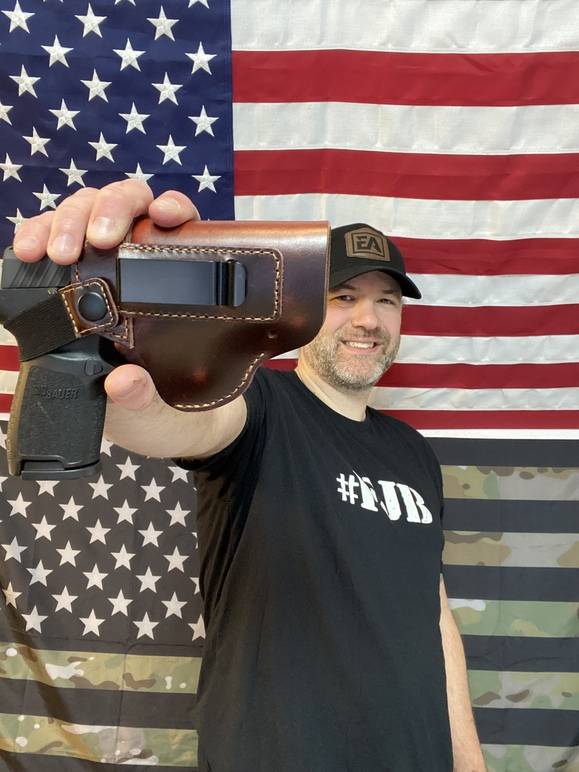The ongoing debate between 10mm and 9mm handgun calibers has left many enthusiasts and new users alike searching for answers. In this blog post, we will delve into the key differences between these two popular calibers, providing a comprehensive comparison of their performance, recoil, and applications.
As a handgun user, understanding these caliber distinctions is essential, as it will not only help you make an informed decision when choosing a firearm but also contribute to your overall safety and shooting experience.
So, let's dive into the fascinating world of 10mm vs 9mm and uncover the factors that make each caliber unique.
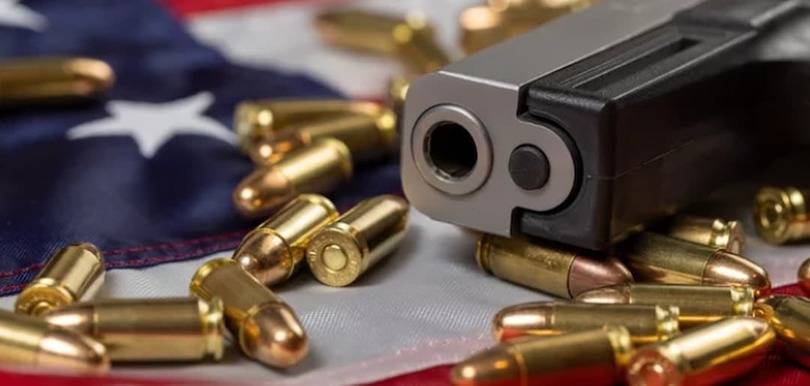
Table Of Contents
I. A Brief History: Tracing the Origins of 10mm and 9mm Calibers
Before diving into the technical aspects of the 10mm and 9mm calibers, it's crucial to understand their respective histories and how they came to be popular choices among handgun users. The development and adoption of each caliber were influenced by various factors, including technological advancements, military and law enforcement requirements, and the evolving needs of civilian shooters.
By exploring the origins of the 10mm and 9mm calibers, we can gain a deeper appreciation for their unique characteristics and how they have shaped the world of firearms today.
1. Development and adoption of the 10mm:
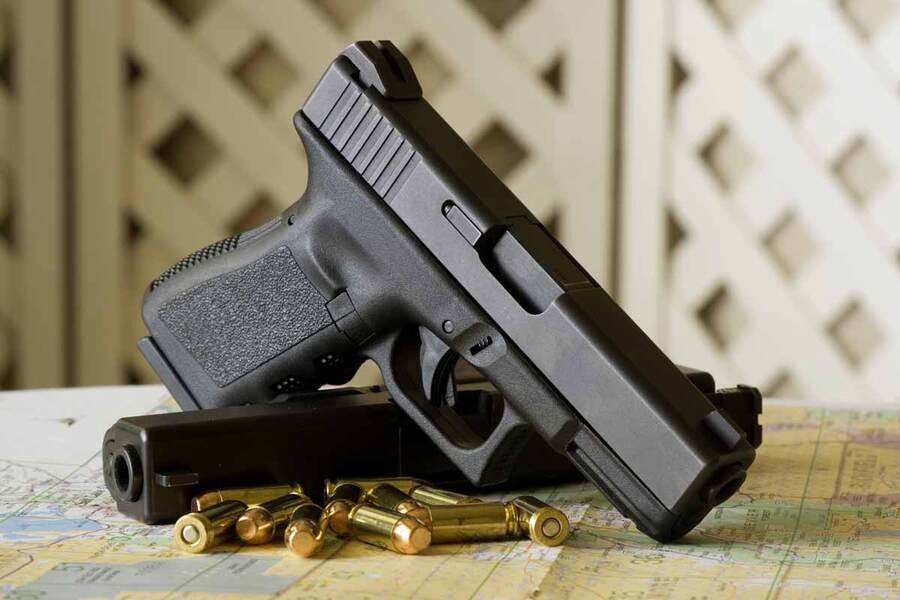
The development of the 10mm Auto caliber is an interesting story that spans across various aspects of the firearms industry. It began in the 1980s when the need for a more powerful and effective cartridge for law enforcement and self-defense purposes arose. To better understand the 10mm Auto's journey, let's break it down into key points:
- Collaboration: Famed gun designer Jeff Cooper collaborated with firearms engineer John Adams to create a cartridge with superior ballistics and stopping power compared to existing options.
Birth of the 10mm Auto: The result of their collaboration was the powerful and versatile 10mm Auto caliber, which quickly gained attention for its impressive performance.
FBI Adoption: In 1983, the FBI adopted the 10mm cartridge for a brief period, further solidifying its reputation as a reliable and effective option for law enforcement.
Recoil and Frame Size: The 10mm Auto's powerful recoil and larger frame size of handguns chambered in this caliber eventually led to its decline in popularity within law enforcement circles.
Transition to Alternative Calibers: Many agencies, including the FBI, transitioned to alternative calibers such as the .40 S&W, which offered a more manageable recoil while still delivering adequate stopping power.
Continued Popularity: Despite its decline in law enforcement usage, the 10mm Auto remains a favorite among enthusiasts, hunters, and some specialized units due to its high energy and versatile performance capabilities.
2. Development and adoption of the 9mm:
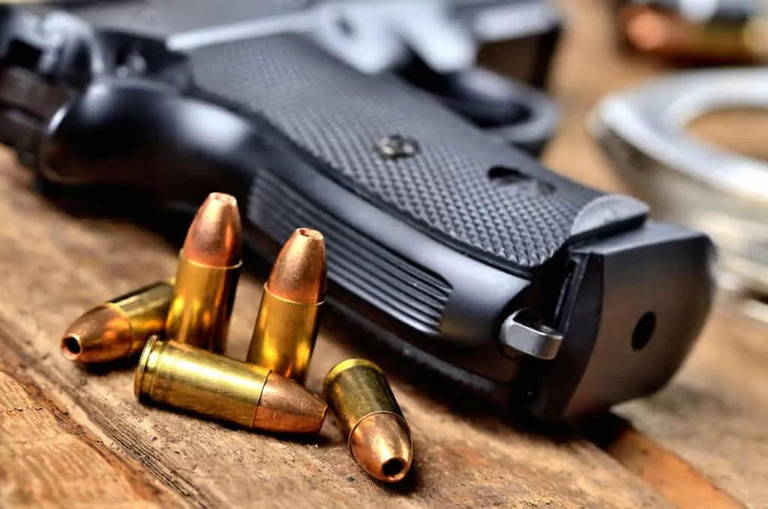
The 9mm Luger, also known as the 9x19mm Parabellum, boasts a rich history that has contributed to its widespread adoption and enduring popularity. Developed in the early 20th century, the 9mm Luger has become a staple in the world of firearms. Here are the key points in its development and adoption:
- Invention: German firearms designer Georg Luger created the 9mm Luger in 1902 as a response to the need for a more effective and efficient cartridge for military and law enforcement applications.
Widespread Adoption: The 9mm Luger was quickly adopted by various military and law enforcement organizations around the world, including the German Army, which was the first to utilize the caliber in 1904.
World Wars: The 9mm Luger played a significant role in both World War I and World War II, further cementing its reputation as a reliable and effective cartridge for military purposes.
Law Enforcement: Many law enforcement agencies worldwide have adopted the 9mm Luger as their primary handgun caliber due to its manageable recoil, adequate stopping power, and high capacity.
Civilian Market: The 9mm Luger's popularity has extended to the civilian market as well, where it is commonly used for self-defense, concealed carry, and sport shooting.
Ammunition Availability: The widespread use of the 9mm Luger has resulted in a vast array of ammunition options, making it one of the most accessible and affordable handgun calibers available today.
Understanding the history and development of the 9mm Luger provides valuable context for its role in the ongoing 10mm vs 9mm debate and highlights the factors that have contributed to its enduring popularity among military, law enforcement, and civilian shooters alike.
II. Caliber Competence Explored: Ballistics, Terminal Consequences, and Shooting Accuracy
1. Ballistics and terminal performance

When it comes to assessing the performance of handgun calibers, three key factors to consider are velocity, energy, and penetration. These factors directly influence the terminal performance of the bullet upon impact, making them crucial in determining the effectiveness of a given caliber. Here's a closer look at each of these factors:
1.1. Velocity
Velocity is a crucial factor in determining the effectiveness of a given caliber, as it directly impacts the bullet's trajectory, accuracy, and energy upon impact. A higher velocity generally results in a flatter trajectory, less bullet drop, and improved accuracy at longer distances. This makes velocity a crucial consideration when selecting a caliber for hunting or long-range shooting.
1.2. Energy
Energy is another essential factor to consider when evaluating the performance of a caliber. It's directly related to the bullet's weight and velocity, and it indicates the potential for the bullet to cause significant damage upon impact. Higher energy levels generally result in more significant damage to the target, making it an important consideration for self-defense and hunting applications.
1.3. Penetration
Penetration refers to the ability of a bullet to penetrate various materials such as clothing, wood, and metal. A caliber's penetration capabilities are influenced by factors such as bullet weight, velocity, and design. In the context of self-defense, penetration is a critical factor to consider, as it can determine whether or not a bullet can effectively stop an attacker. However, over-penetration can also be a concern, as it can potentially pass through the target and cause unintended harm.
Below is a comprehensive comparison table that outlines the key differences between the 10mm and 9mm calibers, providing valuable information for those looking to make an informed decision about which caliber to choose for their firearm.
2. Accuracy and precision
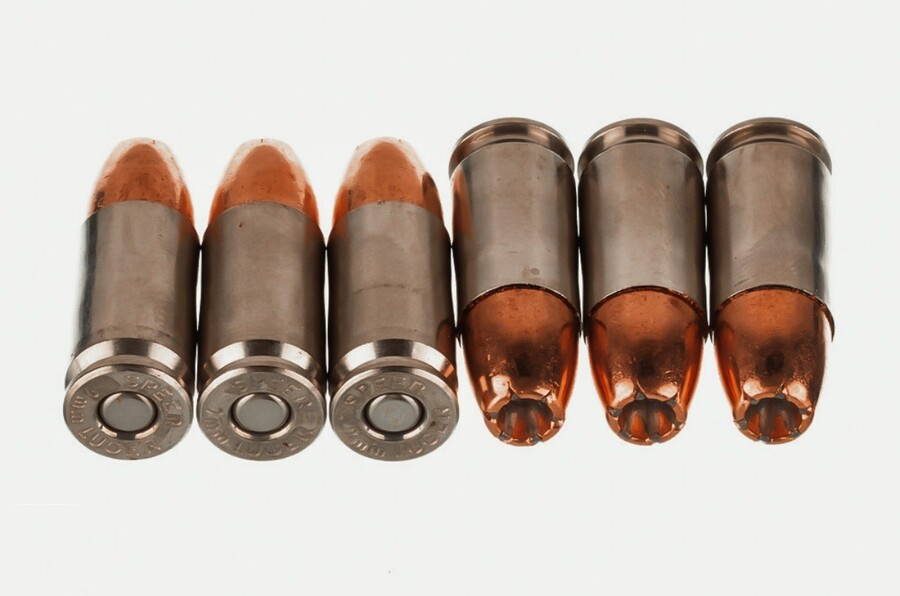
Here's a comparison table that outlines the differences between the 10mm and 9mm calibers in terms of accuracy and precision:
When comparing the accuracy and precision of the 10mm vs 9mm calibers, it's essential to consider the intended application of the firearm, individual shooting abilities, and other factors that can influence accuracy and precision. The 10mm's higher velocity and flatter trajectory make it a suitable option for long-range shooting, while the 9mm's lighter recoil and easier control make it a popular choice for law enforcement and civilian shooters who prioritize accuracy and follow-up shots.
Are you having fun reading with Dinosaurized? Here's a little gift for better shopping experience~
Enter this 15% Discount code: "GundiscussionD15" at Checkout now~
III. Understanding the Impact of Felt Recoil on Shooter Performance in 10mm and 9mm Handguns
1. Felt recoil in 10mm handguns
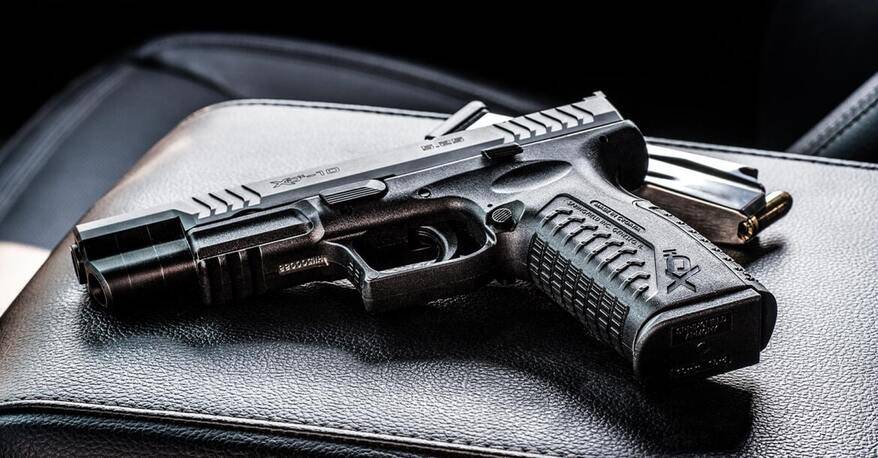
Felt recoil refers to the perceived impact of a firearm's recoil on the shooter, and it's an essential factor to consider when selecting a caliber. In the case of the 10mm, the larger bullet diameter and weight, combined with the higher velocity and energy levels, can result in a stronger felt recoil compared to the 9mm. This can make it more challenging to control and maintain accuracy during follow-up shots, particularly for shooters with less experience.
The strength of the recoil is also influenced by the specific firearm being used, as well as the ammunition and other factors. It's important to note that felt recoil is subjective and can vary from shooter to shooter, so it's essential to consider individual preferences and comfort levels when selecting a caliber.
In terms of mitigating felt recoil in 10mm handguns, there are several techniques and accessories that can help. One effective method is to use a firearm with a heavier frame and slide, as this can absorb some of the recoil energy and make the firearm more comfortable to shoot. Another technique is to use a grip that provides a firm and comfortable hold on the firearm, as this can help reduce the impact of the recoil on the shooter's hand. There are also various recoil reduction systems and aftermarket accessories available that can help reduce felt recoil and improve overall shooting comfort.
By considering these factors, shooters can select a 10mm handgun that balances stopping power with manageable felt recoil.
2. Felt recoil in 9mm handguns
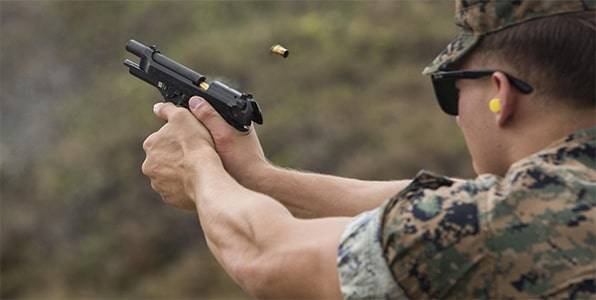
Felt recoil refers to the perceived impact of a firearm's recoil on the shooter, and it's an essential factor to consider when selecting a caliber. In the case of the 9mm, the smaller bullet diameter and weight, combined with the lower velocity and energy levels, result in less felt recoil compared to the 10mm. This makes the 9mm an ideal choice for shooters who prioritize control and follow-up shots. However, felt recoil is subjective and can vary from shooter to shooter, so it's essential to consider individual preferences and comfort levels when selecting a caliber.
In terms of mitigating felt recoil in 9mm handguns, there are several techniques and accessories that can help. Using a firearm with a heavier frame and slide can absorb some of the recoil energy and make the firearm more comfortable to shoot. Using a grip that provides a firm and comfortable hold on the firearm can help reduce the impact of the recoil on the shooter's hand. There are also various recoil reduction systems and aftermarket accessories available that can help reduce felt recoil and improve overall shooting comfort. By considering these factors, shooters can select a 9mm handgun that balances control with manageable felt recoil.
3. Impact of Recoil on shooter performance
The impact of recoil on shooter performance is an important factor to consider when selecting a caliber. Recoil can affect a shooter's accuracy, precision, follow-up shot speed, and overall shooting comfort. The strength of felt recoil and the firearm's design and weight can influence shooter performance. Proper training, shooting techniques, and accessories can help mitigate the impact of recoil on shooter performance, leading to more successful shooting experiences.
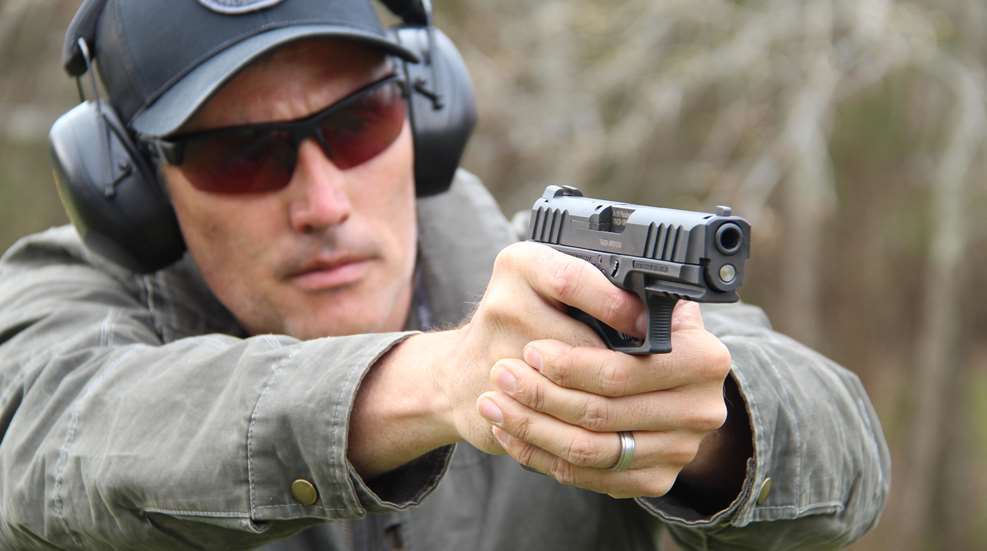
- Recoil is the backward momentum of a firearm after a round is fired.
Recoil can affect a shooter's accuracy, precision, follow-up shot speed, and overall shooting comfort.
The strength of felt recoil is influenced by several factors, including the caliber, firearm design and weight, and ammunition used.
Recoil can cause shooter fatigue and discomfort, which can negatively affect overall performance.
Proper training, shooting techniques, and accessories such as gloves and recoil pads can help reduce felt recoil and improve shooting comfort.
Choosing a caliber with manageable felt recoil can enhance shooter performance and enjoyment, leading to more successful shooting experiences.
IV. Applications and Use Cases
1. Self-Defense Scenarios
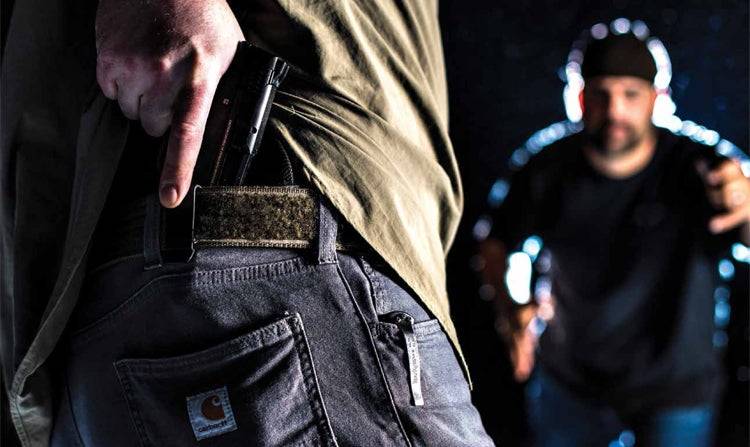
1.1. Home Defense
When considering a caliber for home defense, it is important to evaluate factors such as stopping power, penetration, and reliability. The 10mm round is known for its powerful ballistics, providing higher energy and deeper penetration compared to the 9mm. This can be an advantage in stopping potential threats quickly and effectively. However, overpenetration can also be a concern with the 10mm, as rounds may pass through walls and potentially harm unintended targets.
The 9mm, on the other hand, offers a more manageable recoil, allowing for faster follow-up shots and better control during high-stress situations. Additionally, 9mm ammunition is widely available and often more affordable, making it an attractive option for those who want to maintain a sufficient stockpile for home defense purposes.
1.2. Concealed Carry
For individuals who choose to carry a concealed weapon for personal protection, factors such as size, weight, and comfort are crucial. The 9mm caliber is frequently the preferred choice for concealed carry due to its more compact and lighter handguns, making them easier to carry discreetly and comfortably throughout the day. Additionally, the lower recoil of the 9mm allows for better control and accuracy when quick, defensive action is required. While the 10mm can offer greater stopping power, its larger frame and higher recoil can be less desirable for concealed carry purposes. Ultimately, the choice between 10mm and 9mm for concealed carry will depend on an individual's preferences, hand size, and ability to effectively manage the recoil of their chosen caliber.
The Farmman Leather Holster provides an ideal solution for concealed carry, ensuring a perfect blend of comfort and functionality. Its premium leather construction not only offers durability but also molds comfortably to your body, ensuring discreet concealment. With its versatile fit, you can comfortably carry and quickly draw your firearm when necessary.
Are you having fun reading with Dinosaurized? Here's a little gift for better shopping experience~
Enter this 15% Discount code: "GundiscussionD15" at Checkout now~
2. Sport shooting
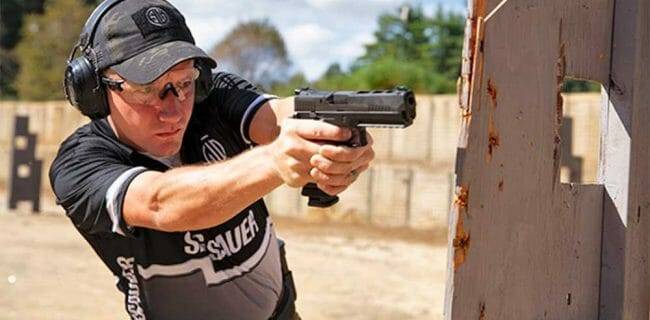
2.1. Competitive Shooting
In the realm of competitive shooting, accuracy, precision, and rapid follow-up shots are essential to success. Many competitors prefer the 9mm caliber due to its lower recoil and quicker target reacquisition, allowing them to maintain a competitive edge. Additionally, the 9mm's widespread popularity means that a wide variety of competition-ready firearms and accessories are available, catering to the unique needs of sport shooters.
While the 10mm can also be used in competitive shooting, its higher recoil may prove more challenging to manage, especially during rapid-fire stages or when shooting for extended periods. Furthermore, the larger size and weight of 10mm handguns may be less desirable for some competitors who prioritize speed and agility.
2.2. Target Practice
For recreational shooters who enjoy honing their skills at the range, both the 10mm and 9mm calibers offer unique benefits. The 10mm's powerful ballistics and flatter trajectory can provide a satisfying shooting experience, particularly for those who appreciate the challenge of managing its recoil and mastering its capabilities. However, the increased cost of 10mm ammunition and potential fatigue from prolonged shooting sessions may be factors to consider.
The 9mm, on the other hand, is an excellent choice for target practice due to its lower recoil, more affordable ammunition, and wider availability. This allows shooters to spend more time at the range without breaking the bank or experiencing excessive fatigue. Ultimately, the choice between 10mm and 9mm for target practice will depend on individual preferences, budgets, and shooting goals.
3. Hunting Applications

3.1. Large Game
The 10mm caliber is often considered more suitable for hunting large game due to its higher energy, deeper penetration, and flatter trajectory. These attributes enable the 10mm to deliver more effective shots on larger animals such as deer, hogs, or even bear at moderate distances. Many hunters appreciate the power and versatility the 10mm offers, especially when using the proper ammunition designed for hunting purposes. However, it is essential to practice responsible hunting ethics and ensure shot placement is accurate to achieve a humane and efficient harvest.
3.2. Small Game and Varmint Control
For small game and varmint hunting, the 9mm can be an effective option. Its lower recoil allows for better accuracy and quicker follow-up shots, which can be essential when dealing with fast-moving or elusive animals. Additionally, the wide variety of 9mm ammunition choices, including lighter, faster bullets or hollow-point designs, allows hunters to customize their load according to the specific needs of their hunting scenario.
While the 9mm may not be as powerful as the 10mm, it is still capable of dispatching small game and varmints effectively when used responsibly and accurately.
V. Choosing the Right Caliber for You
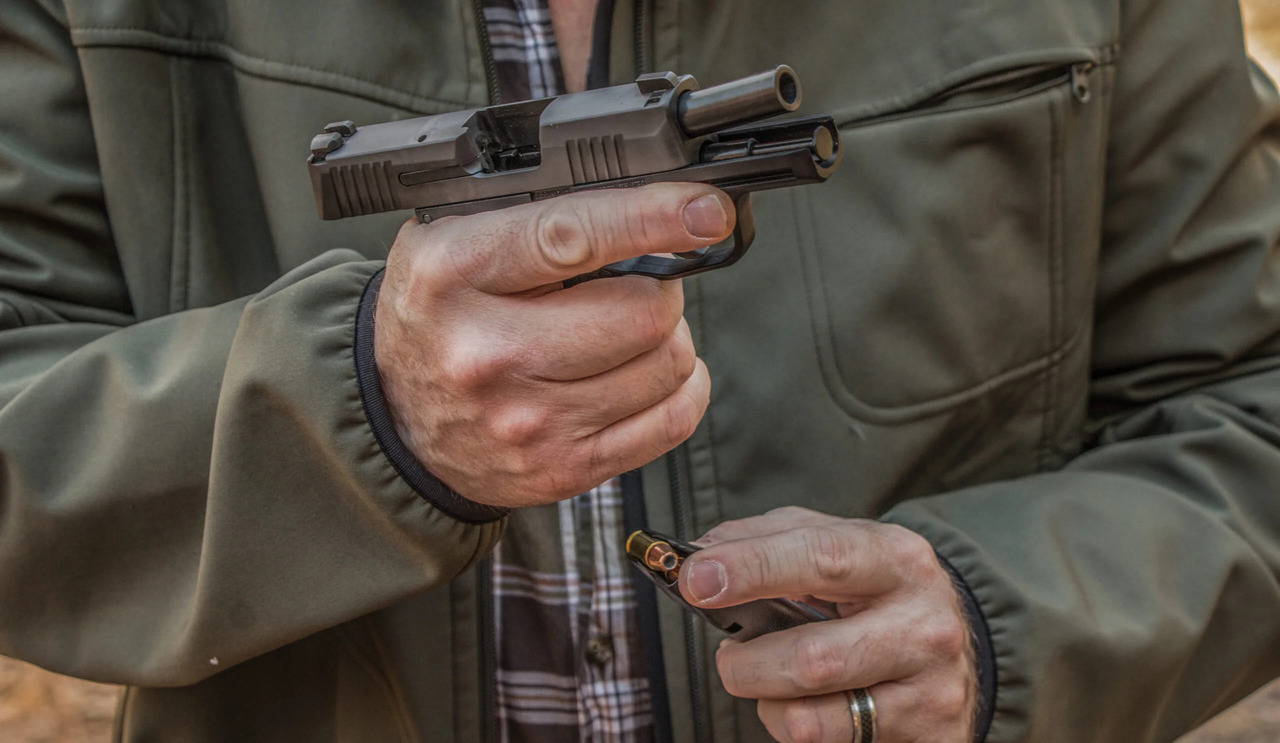
1. Factors to consider
1.1. Personal preferences
Your choice of caliber should align with your preferences in terms of recoil, power, and handgun size. Some shooters prefer the more powerful 10mm round, while others may appreciate the lower recoil and more manageable characteristics of the 9mm.
1.2. Handgun fit and comfort
The fit and comfort of the handgun in your hand are crucial factors to consider. A handgun that feels uncomfortable or difficult to grip can negatively impact your shooting performance. Test different handgun models chambered in both 10mm and 9mm to determine which provides the best fit and comfort for your hand size and shape.
1.3. Intended use
Consider your primary purpose for owning a handgun, whether it be home defense, concealed carry, competitive shooting, target practice, or hunting. Each caliber has its strengths and limitations depending on the intended use, so choose the one that best suits your specific needs.
2. Recommendations for various user profiles
2.1. Home Defense
Both 10mm and 9mm can be effective for home defense. However, the 9mm's lower recoil and reduced risk of overpenetration may be more suitable for most users.
2.2. Concealed Carry
The 9mm is generally recommended for concealed carry due to its smaller, lighter handguns and lower recoil, making it easier to handle and carry discreetly.
2.3. Competitive Shooting
The 9mm is typically preferred in competitive shooting due to its lower recoil, which allows for quicker target reacquisition and follow-up shots.
2.4. Target Practice
Both calibers can be enjoyable for target practice, but the 9mm offers more affordable ammunition and less fatigue, making it a popular choice for recreational shooters.
2.5. Hunting
The 10mm is generally better suited for hunting, particularly for larger game, due to its higher energy, deeper penetration, and flatter trajectory. However, the 9mm can still be effective for small game and varmint control.
VI. FAQs
1. Which caliber has less recoil: 10mm or 9mm?
2. Is the 10mm or 9mm more suitable for concealed carry?
The 9mm is generally more suitable for concealed carry due to its smaller, lighter handguns and lower recoil.
3. Can the 10mm be used effectively in competitive shooting?
While the 10mm can be used in competitive shooting, its higher recoil may prove challenging compared to the more popular 9mm.
4. Which caliber is better for hunting large game?
The 10mm caliber is more suitable for hunting large game due to its higher energy, deeper penetration, and flatter trajectory.
5. Is 9mm ammunition more affordable than 10mm ammunition?
Yes, 9mm ammunition is generally more affordable than 10mm ammunition, making it a popular choice for target practice and recreational shooting.
6. How do I decide between the 10mm and 9mm for my needs?
Consider factors such as personal preferences, handgun fit and comfort, recoil management, and intended use. Trying both calibers and assessing their performance in various scenarios will help you make an informed decision.
VII. Final thoughts
In conclusion, the choice between 10mm and 9mm calibers depends on individual preferences, intended use, and comfort. The 10mm offers higher energy and deeper penetration, making it suitable for hunting and providing stopping power, while the 9mm is more manageable, making it popular for concealed carry, competitive shooting, and target practice. To make an informed decision, consider factors such as handgun fit, recoil management, and specific shooting applications. Trying out both calibers and assessing their performance will help you find the best option that suits your unique needs and requirements.
Recent Articles:
Undercover Style: Top Holsters For Tucked-In Shirts & Concealed Carry
Bullet Sizes Uncovered: A Comprehensive Guide To Calibers and Handguns
Maximizing Your Range Time: A Guide To Shot Timers
Clip Vs. Magazine: Clearing Up The Confusion For Gun Owners
From Range to Tactical: The Best AR Pistols For Every Purpose
Single vs Double Magazine Showdown: Which One Wins For Reliability and Capacity ?
Mastering Barrel Measurement: Understanding The Importance of Accurate Barrel Lengths
Are you having fun reading with Dinosaurized? Here's a little gift for better shopping experience~
Enter this 15% Discount code: "GundiscussionD15" at Checkout now~

